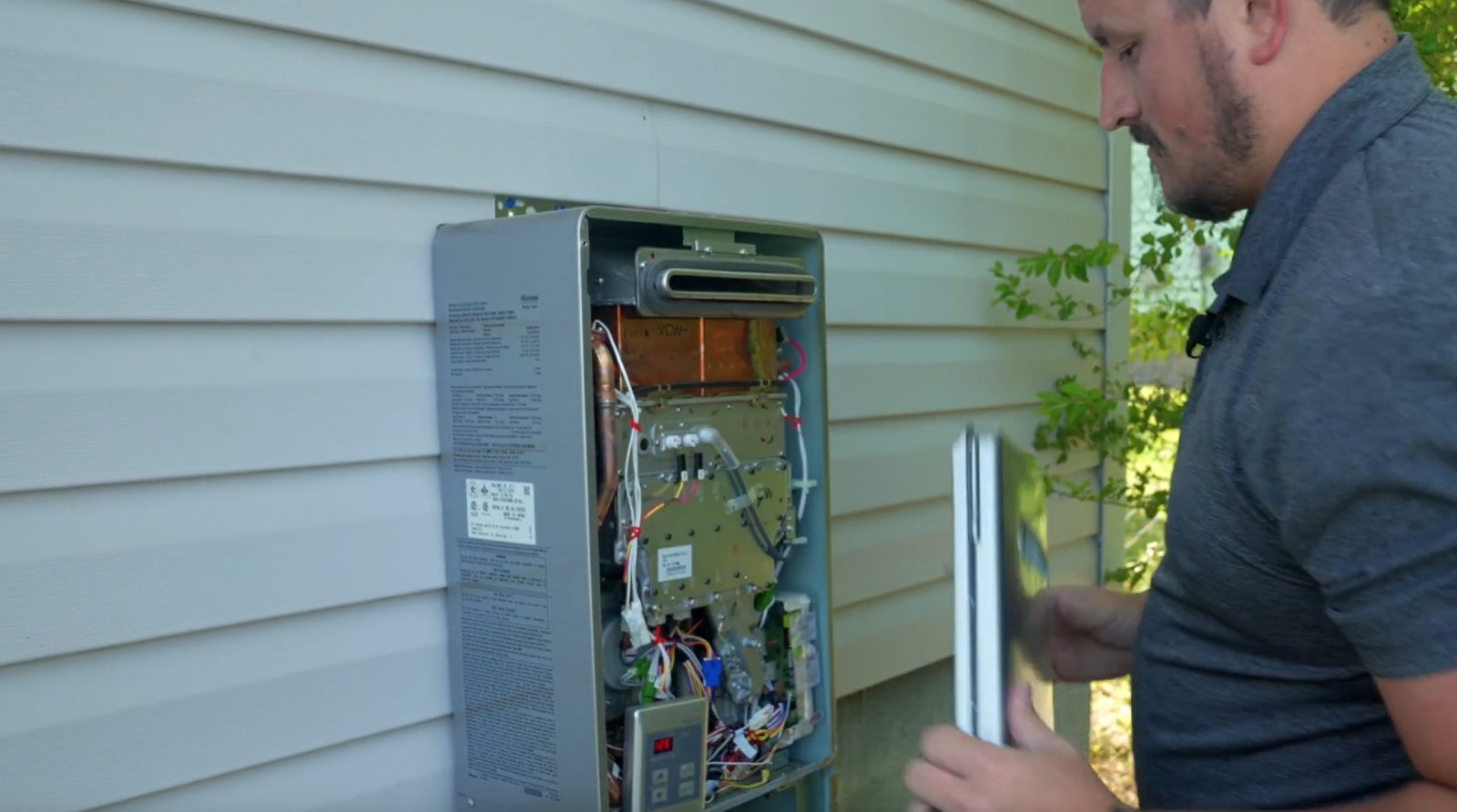The Truth About Tankless Water Heaters
Considering a tankless water heater? They’re proving popular in Randolph County, Guilford County, Greensboro and beyond, but many homeowners wonder if they’re worth the hype. We’ve put together this helpful guide with the pros and cons of traditional heaters and tankless models to help you make the best choice for your home.
Tankless Water Heaters Are Better For Smaller Homes
One of the top benefits of tankless heaters from companies like Rinnai is that they take up much less space than a traditional unit. With older style water heaters, you have to account for a large tank to hold all of the hot water that you might need at a given time—even for single-person residences, the tank can be quite large. Since tankless units heat the water as it passes through, they are much smaller and can be mounted on a wall. Keep in mind though that if you live in an area with hard water, you might also need to install a softener which itself can be bulky.
Traditional Water Heaters Require Less Setup For Large Families
A benefit of traditional water heaters is that it’s very easy to set one up that will serve a large family. If you expect to run the dishwasher, shower and sink at the same time, you simply choose a tank large enough hot water for all of those uses. With a tankless unit, you need to be more careful about choosing the right model and setting it up correctly. Of course, if you choose a reputable local propane company to install it, they’ll take all the appropriate considerations.
Traditional Units Are Cheaper To Install, But Tankless Units Save Money Over Time
Another area where traditional models win is upfront cost. Because the technology in them is less advanced, they simply cost less to manufacture and install. That being said, tankless units usually make up for the difference after a few years of operation. They heat only the water you need at a given moment which means almost no waste, less frequent propane refills and savings on your bills. They last longer too, which means less money spent on maintenance. These differences quickly add up and make tankless units the cheaper choice in the long run.
Tankless Heaters May Qualify For Special Savings
In addition to saving you money on bills, tankless models may qualify for tax credits or special rebates on installation. These vary from company to company, state to state and depending on federal regulations at the time, so be sure to do some research if you’re considering a new water heater. Luckily, your local propane company will be able to help you make sense of potential savings if you give them a call. These rebates along with savings over time make tankless water heaters a viable option for many families.
The Clear Winner For Durability Is Tankless Water Heaters
Another big plus of newer tankless models is that they’re built to last up to 20 years without significant maintenance. Traditional models, meanwhile, need significant repair or replacement every 8 to 12 years on average. Because of this, companies like Rinnai offer great manufacturer warranties. So if your new tankless unit does have issues, you’ll be able to fix it without worry. This is one of those hidden costs that homeowners tend to forget, but makes a big difference in your savings in the long run.
How Often Should You Flush Your Tankless Water Heater?
No matter what kind of water heater you choose, you’ll need to flush it periodically to keep it running at peak performance. Otherwise, minerals can build up inside the system and cause it to work less efficiently. It’s generally recommended that traditional models be flushed every six months and tankless models be flushed once a year, although homeowners with bad water should do it up to every three months. Traditional models also take longer to flush and have the added hassle of waiting for the full tank of water to heat back up.
Is A Tankless Water Heater Really Better?
The short answer is that, if you can afford the initial cost of a tankless water heater after rebates and tax credits, it’s probably the better choice for your home. To make the decision clearer, we’ve put together this reference table with all the information at a glance.
| Tankless Water Heater | Traditional Water Heater |
|---|---|
| Higher upfront cost | Lower upfront cost |
| Lower costs on bills | Higher costs on bills |
| Compact, fits in small areas | Bulky, needs space for tank |
| Can be wall mounted | Takes up space on floor |
| Average lifespan of 20 years | Average lifespan of 8~12 years |
| May qualify for tax credits | Specific models may qualify for tax credits |
| Often qualifies for installer rebates | Commonly does not qualify for rebates |
| Heats water in a few seconds | Heats full tank in 30 to 40 minutes |
| Yearly flush recommended | Six month flush recommended |
| Wastes almost no water | Wastes unused water |
Euliss Is The Supplier Of Tankless Water Heaters In North Carolina
Here at Euliss, we supply Guilford County, Randolph County, Greensboro, Burlington, Winston-Salem, Alamance, Chatham, Liberty and beyond. If you’re a tankless water heater in Randolph County or Guilford County, get in touch. We even help you get all applicable rebates!





